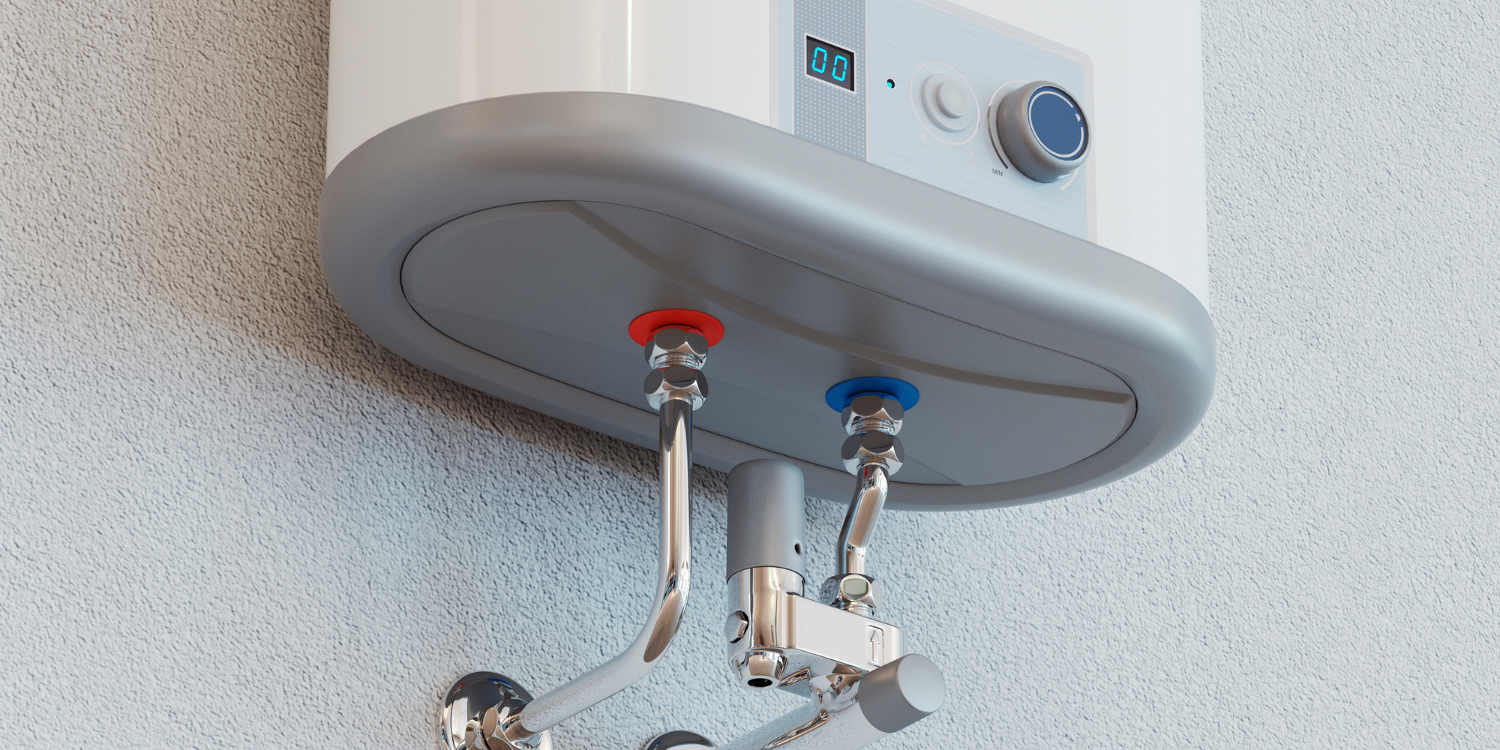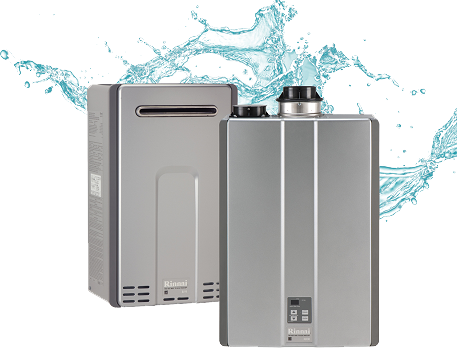We have come across this article pertaining to Unveiling the Hot Trend: The Benefits of Tankless Water listed below on the internet and felt it made sense to discuss it with you in this article.

In a globe where benefit and efficiency preponderate, it's no surprise that homeowners are continuously in search of smarter ways to handle their home's energy usage and comfort. One technology that has steadily obtained appeal is the tankless hot water heater. Yet exactly what makes these systems stick out from the traditional tank-based models the majority of us grew up with? Let's dive in and check out the advantages of tankless water heaters, helping you make a decision if it's time to make the button in your home.
Introduction
Picture this: you step into the shower after a long day, expecting a comforting waterfall of hot water, only to be greeted by icy beads due to the fact that the last person utilized it all up. Sound acquainted? Standard water heaters store a fixed quantity of hot water, indicating you're at the mercy of that storage tank's supply. Tankless systems, on the other hand, warm water on demand. No more running out mid-shower, say goodbye to wrestling with routines just to ensure warm water is offered.
Understanding Tankless Hot Water Heater
What Are Tankless Water Heaters?
Tankless water heaters, often referred to as on-demand or immediate water heaters, provide hot water only as it's needed. As opposed to keeping gallons of pre-heated water, these systems kick into action the moment you activate the faucet. Water goes through a warmth exchanger, heating up in real-time, meaning you get a continuous flow of hot water without the demand for a huge tank resting idly by.
Just how Do They Vary from Standard Systems?
Standard heating systems hold a reservoir of warm water, using power to maintain that container at a regular temperature level. Tankless units remove the standing supply, reducing lost power and the bulky impact of a big cylinder. Basically, you're upgrading from a "accumulation" attitude to a "made-to-order" approach.
Typical Types of Tankless Devices
Tankless water heaters typically can be found in two selections: gas and electric. Gas versions often tend to deliver greater circulation prices, perfect for larger homes, while electric versions frequently offer smaller homes and are usually easier to set up. Furthermore, some systems are designed for point-of-use (offering one fixture) while others can take care of the entire home's warm water demands.
Secret Advantages of Tankless Hot Water Heater
1. Unlimited Hot Water Supply
Ever needed to schedule showers so everybody obtains their fair share of warm water? With tankless, that becomes a thing of the past. As long as the heater's flow capacity isn't gone beyond, you can take back-to-back showers without becoming a popsicle.
2. Power Performance and Cost Financial Savings
No more heating a titan container's worth of water and keeping it warm all day. Tankless heating systems reduce standby power losses, which can lower utility bills. While the initial cost might be higher, the long-lasting savings frequently warrant the investment.
3. Space-Saving Design
If your home is short on storage, removing the cumbersome container liberates valuable space. Tankless units are small and can usually be placed on wall surfaces, tucked away in corners, or set up in tight energy storage rooms without monopolizing the entire area.
4. Longer Lifespan
A well-maintained tankless water heater can outlive its tank-based relative. Standard tanks may last 10-15 years, while tankless models can maintain downing along for twenty years or more, making them a solid investment in time.
5. Improved Water Quality
Storing water in a container can often lead to sediment accumulation or a somewhat "off" preference. With tankless systems, fresh water is warmed on the spot, decreasing the chances of sediment buildup and possibly using cleaner-tasting water.
Factors to consider Prior To Changing
Though the advantages are compelling, it's important to consider a couple of elements prior to completely dedicating.
First Investment Expenses
Tankless heating units normally include a higher upfront cost. In between the unit itself and prospective setup alterations, the initial price may give you sticker label shock. However remember to view it as a lasting investment.
Installment Demands
Depending on your home's framework, you may require additional electric capacity or gas line upgrades. Ensure you recognize the installation needs and seek advice from an expert to avoid shocks.
Assessing Your Home's Water Usage Patterns
If your family at the same time makes use of numerous components with high hot water need, ensure the device's flow rate fulfills your needs. Understanding your use patterns helps you select the appropriate size and type of tankless heater.
Upkeep and Care Tips
Tankless systems are fairly low upkeep, but they aren't set-it-and-forget-it home appliances.
Regular Cleansing and Descaling
Tough water minerals can develop in the warmth exchanger, influencing effectiveness. Regular descaling (frequently advised every year) keeps the device going for peak performance.
Yearly Professional Inspections
A yearly checkup from a professional makes certain minor problems are captured early. They'll assess the system's efficiency, seek leaks, and assist keep ideal efficiency.
Guaranteeing Proper Air Flow
For gas versions, proper ventilation is necessary to safely expel exhaust gases. Make sure venting systems are clean and appropriately mounted to prevent any potential security hazards.
Contrasting Different Brands and Designs
Not all tankless hot water heater are developed equal.
Researching Trustworthy Makers
Look for respectable brands with a background of generating quality units. A reputable supplier frequently supplies far better client assistance and longer warranties.
Reading Evaluations and User Feedback
User testimonials and feedback from neighbors or friends who have actually gone tankless can supply important understandings. Occasionally, real-life experiences can be much more telling than advertising and marketing pamphlets.
Installation: DIY or Professional?
While some home owners relish taking on projects themselves, tankless setup might not be the very best time to burst out the toolbox.
Benefits and drawbacks of DIY Installation
A DIY mount could conserve cash, yet it features threats. Inaccurate installation can cause inadequacy or safety and security concerns. If you come in handy and have experience, it could be practical-- however wage care.
When to Call an Expert Plumbing
For a lot of, calling a professional makes certain whatever's done appropriately. A specialist plumbing professional comprehends local codes, sizing needs, and airing vent specifications, lowering the risk of problems.
Taking full advantage of Performance
You've bought a tankless system-- currently maximize its effectiveness.
Optimum Temperature Settings
The majority of people establish their units between 120-140 F. Adjusting the temperature can boost comfort and cost savings. Experiment to locate a pleasant place that doesn't throw away power.
Coupling With Low-Flow Fixtures
Want to stretch your system's capacities? Consider installing low-flow showerheads and taps. They reduce water usage, permitting your tankless system to supply a consistent stream of hot water without stressing.
Ecological Impact
Tankless hot water heater align with greener living objectives.
Decreased Carbon Footprint
By utilizing less power and just heating water as required, tankless systems can reduce your home's carbon impact, decreasing your ecological effect.
Conserving Natural Resources
Much less power consumption and much less thrown away hot water translate into less natural resources being utilized, an environmental win-win.
That Profits The Majority Of from Tankless Heating units?
The appeal of tankless heaters is that they can fit a selection of families.
Large Households vs. Solitary Owners
Huge family members might love the limitless warm water supply, while single owners appreciate the power financial savings from not heating up an entire storage tank for simply one person's morning shower.
Property Owners with Restricted Room
If your home is short on square footage, losing the bulky tank frees up room for other fundamentals-- or maybe just more elbow room.
Eco-Conscious Consumers
Going tankless aligns with environmentally friendly worths, ensuring you're not losing energy or resources.
Future Fads in Tankless Water Heaters
The globe of home devices is ever-evolving, and tankless water heaters are no exception.
Smart Home Assimilation
Envision readjusting your water heater's temperature through an application or obtaining upkeep informs on your phone. As clever home tech advances, we'll see even more connection and benefit.
Advancements in Modern technology
R&D is constantly boosting warmth exchangers, making systems a lot more effective and resilient. Future models might be also quieter, a lot more small, and better fit for varying environments.
Verdict
Selecting a tankless water heater is more than simply updating your home's hot water system; it's purchasing long-term comfort, energy performance, and a greener way of life. By considering your family's water usage, being mindful of installation needs, and devoting to normal upkeep, you can enjoy a constant stream of hot water without the luggage of a large storage tank. As technology advances, you can look forward to even smarter, a lot more efficient tankless remedies that not only make your life simpler yet additionally benefit the world.
Six Benefits of a Tankless Hot Water Heater
Continuous hot water. Large families know what a pain it is to hop into the shower and get blasted with cold water. With a tankless hot water heater, this doesn't happen as long as you install the right size tank. Even if you don t have a large family, a tankless hot water heater allows you to use multiple appliances at once without running out of hot water. Reduced energy bill. Because tankless heaters are essentially "off" when the water tap is not on, they use less energy overall. In fact, an ENERGY STAR-qualified tankless hot water heater can use 25-40% less energy than a conventional water heater, and save the average family $100 or more annually. Longer life. Get more bang for your buck with a greater lifespan. Specifically, conventional hot water heaters last about 10-13 years compared with up to 20 years for a tankless hot water heater. Less space. Did you know that tankless hot water heaters can be hung on a wall almost anywhere in your home? Plus, at 28" tall by 20" wide and 10" deep, a tankless hot water heater takes up a lot less space than a conventional hot water heater, which is 60" tall and 24" wide. Good for the environment. In addition to reducing the amount of energy used, most propane-fired tankless water heaters are made of recycled materials. Many conventional tanks, on the other hand, go directly to the dump once they've served their purpose. High safety ratings. Conventional water heaters are "always on" and thus pose safety risks more often than do tankless heaters, which only operate when warm water is needed. https://www.rotorooter.com/blog/water-heaters/six-benefits-of-a-tankless-hot-water-heater/

We hope you enjoyed reading our post on 5 Benefits of Tankless Water Heaters. Thank you so much for taking a few minutes to read our blog. Are you aware of another person who is interested by the niche? Take a moment to share it. Many thanks for being here. Come back soon.
Call Today